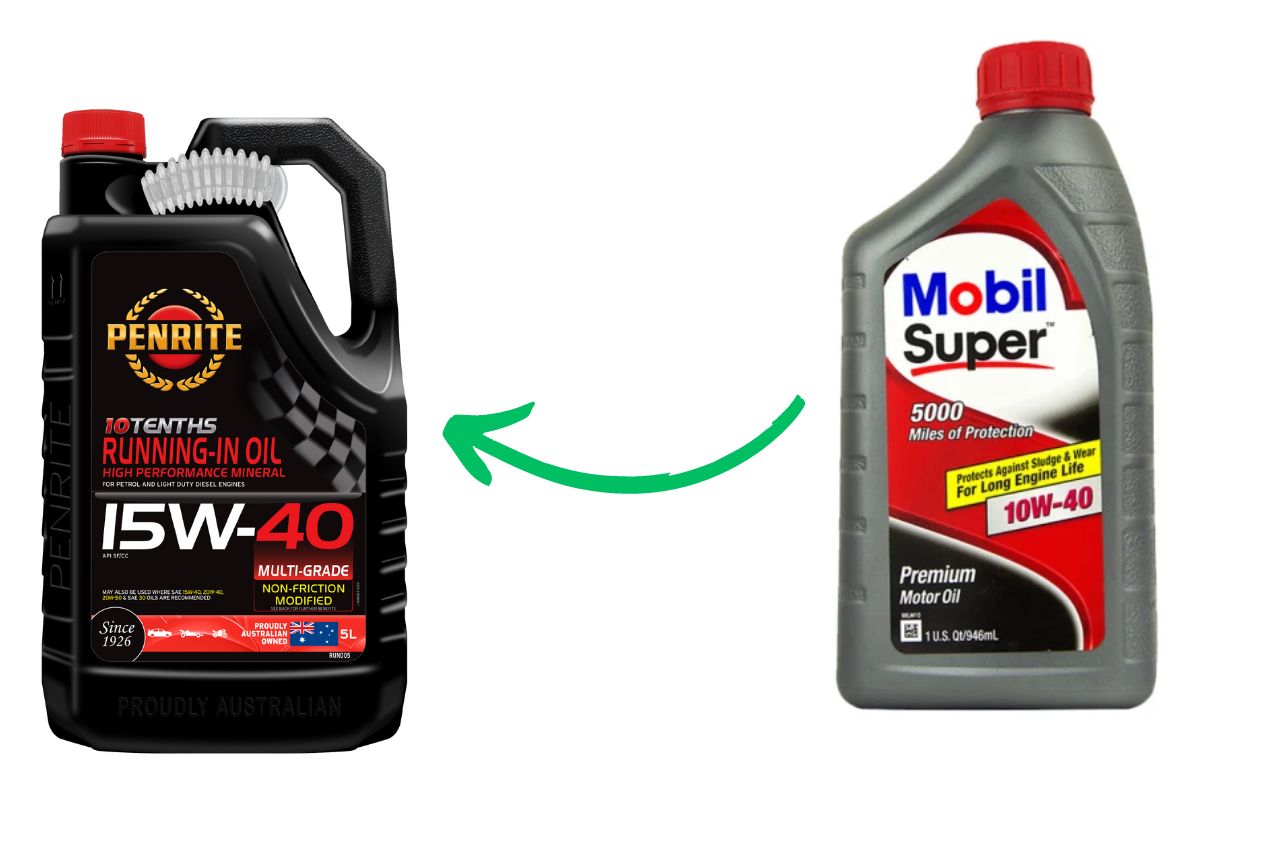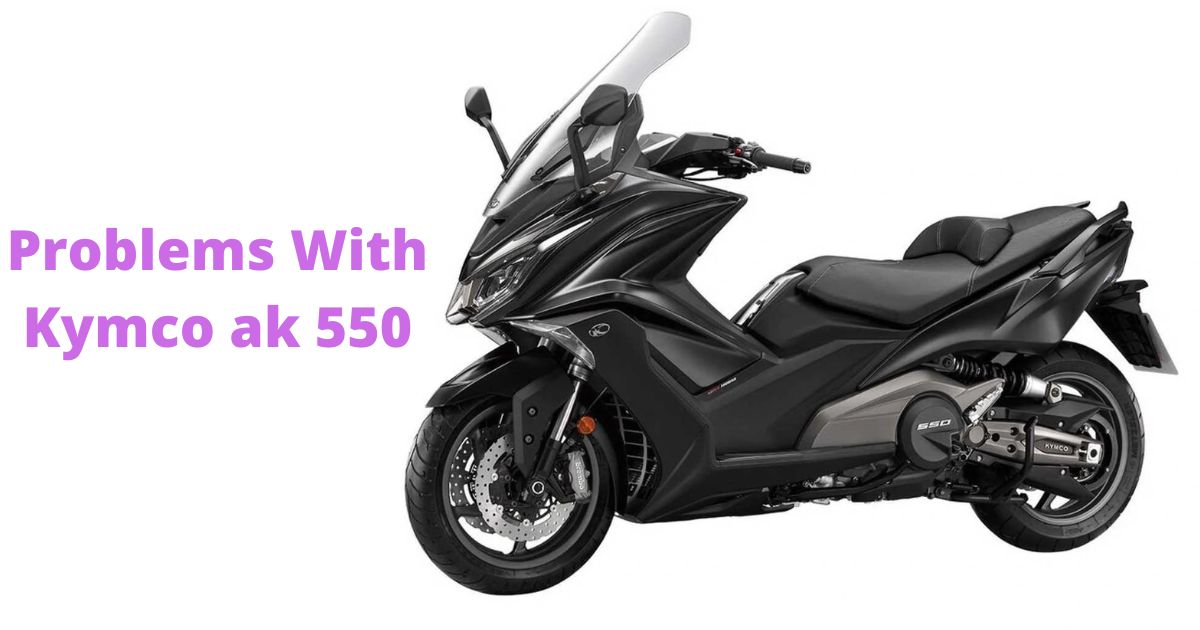Are you considering using 15w40 oil instead of 10w40 in your motorcycle?
Before making a decision, it is important to understand the differences between these two oil viscosities and the potential implications for your motorcycle’s performance and longevity.
This article will explore the differences between 10w40 and 15w40 oils, manufacturer recommendations, potential risks of using 15w40 in a motorcycle and benefits of using 10w40, considerations for specific riding conditions.
By the end of this article, you will have the knowledge needed to make an informed decision regarding the use of 15w40 oil in your motorcycle. So, Can I Use 15w40 Instead Of 10w40 In My Motorcycle?
Yes, you can use 15W-40 oil in your motorcycle instead of 10W-40 oil. The main difference between the two oils is their viscosity, or thickness.
15W-40 oil is thicker than 10W-40 oil, which means it will flow more slowly at cold temperatures. However, both oils will flow the same at operating temperatures.
Can You Use 15w40 Instead Of 10w40 In My Motorcycle?
Oil viscosity ratings, such as 10w40 and 15w40, indicate the oil’s ability to flow at different temperatures. While both oils may appear similar, their performance characteristics can vary significantly.
If you live in a cold climate, using 15W-40 oil may help to prevent your engine from seizing up when you start it in cold weather. However, if you live in a warm climate, using 15W-40 oil may not be necessary.
It is always best to check your motorcycle’s owner’s manual to see what type of oil is recommended. However, if you are unable to find the owner’s manual, or if you are not sure what type of oil to use, you can always consult with a mechanic.
Here are some of the pros and cons of using 15W-40 oil in your motorcycle:
Pros:
- Can help to prevent engine seizure in cold weather.
- Provides better wear protection at high temperatures.
- Can last longer than 10W-40 oil.
Cons:
- May not be necessary in warm climates.
- Can be more expensive than 10W-40 oil.
- Can make the engine harder to start in cold weather.
Understanding Oil Viscosity Ratings
You might be wondering why oil viscosity ratings are so important when it comes to taking care of your motorcycle. Well, let me tell you.
Oil viscosity testing is crucial because it determines how well the oil can flow and lubricate your motorcycle’s engine parts. The viscosity rating, such as 10W40 or 15W40, indicates the oil’s resistance to flow at different temperatures.
The number before the ‘W’ represents the oil’s viscosity at low temperatures, while the number after the ‘W’ represents its viscosity at high temperatures.
This is important because as temperature increases, oil tends to thin out, reducing its ability to lubricate effectively.
By using the correct oil viscosity, like 10W40, you ensure optimal lubrication and protection for your motorcycle’s engine, regardless of temperature fluctuations.
Differences Between 10w40 and 15w40 Oils
If you’re wondering about the differences between 10w40 and 15w40 oils, it’s important to understand their composition and properties.
10w40 oil is a multigrade oil that consists of a blend of base oils and additives, designed to offer good performance in a wide range of temperatures.
On the other hand, 15w40 oil is also a multigrade oil, but with a slightly higher viscosity at higher temperatures compared to 10w40.
These differences in composition and viscosity can impact motorcycle engines by affecting their lubrication and protection capabilities in different temperature conditions.
Composition and Properties of 10w40 Oil
When it comes to the composition and properties of 10w40 oil, it’s essential to understand the viscosity and temperature range that makes it suitable for your motorcycle.
The viscosity of oil refers to its resistance to flow, and it is crucial in determining how well the oil can lubricate the engine components. 10w40 oil has a viscosity rating of 10 in cold temperatures, indicating its ability to flow smoothly at lower temperatures.
This ensures that the engine parts receive proper lubrication even during startup. As the temperature increases, the oil thins out to a viscosity rating of 40, providing adequate lubrication and protection to the engine.
Understanding oil viscosity is essential as it directly impacts the performance and longevity of motorcycle engines.
- The viscosity rating of 10w40 oil ensures smooth flow and lubrication at both low and high temperatures. This protects the engine against wear and tear, especially during startup.
- It also helps maintain proper oil pressure and temperature regulation.
- 10w40 oil provides a balance between fuel economy and engine protection. It reduces friction, heat, and engine wear, enhancing overall performance.
- The oil’s properties also prevent the formation of sludge and deposits, keeping the engine clean and running efficiently.
10w40 oil’s composition and properties make it suitable for motorcycle engines, offering the necessary lubrication and protection in a wide range of temperatures.
Composition and Properties of 15w40 Oil
15w40 oil is a multigrade oil that exhibits a viscosity rating of 15 in cold conditions and 40 in hot conditions. This viscosity rating ensures optimal engine performance throughout a wide range of temperatures.
The oil contains a balanced blend of base oils and additives that provide excellent protection against wear, corrosion, and oxidation. The high viscosity index of 15w40 oil allows it to maintain its thickness and lubricating properties even under extreme temperature variations.
This oil is specifically formulated to provide enhanced protection for high-performance engines, ensuring proper lubrication and reducing friction.
How Do These Differences Impact Motorcycle Engines?
Experience the impact of these differences on your motorcycle engine and see how they can enhance performance and ensure long-lasting durability.
Understanding the differences in oil viscosity, specifically between 15w40 and 10w40, is crucial in maintaining optimal engine performance. Here are four key points to consider:
- Viscosity: The numbers before the ‘w’ indicate the oil’s viscosity at low temperatures. 10w40 flows more easily at lower temperatures, providing better engine protection during startup.
- Temperature range: 15w40 is better suited for higher temperatures, making it ideal for motorcycles subjected to extreme heat. It maintains its viscosity better in hotter conditions, reducing engine wear.
- Lubrication: The thicker viscosity of 15w40 offers superior lubrication and film strength, ensuring proper protection for critical engine components, especially in high-performance motorcycles.
- Fuel efficiency: The lower viscosity of 10w40 improves fuel efficiency by reducing friction. However, 15w40 may be more suitable for older or heavily worn engines that require extra lubrication.
By carefully choosing the right oil viscosity, you can optimize your motorcycle’s engine performance and ensure its longevity.
Manufacturer Recommendations
Although it might be tempting to use 15w40 instead of 10w40 in your motorcycle, it’s important to consider the manufacturer’s recommendations. Using the recommended oil viscosity ensures optimal performance and protection for your engine.
To help you understand the importance of manufacturer recommendations, here is a table showcasing some potential risks of using the wrong oil viscosity in your motorcycle engine:
| Potential Risks |
|---|
| Increased engine wear |
| Poor lubrication |
| Reduced fuel efficiency |
| Engine overheating |
Potential Risks of Using 15w40 in a Motorcycle
To fully grasp the potential risks of using 15w40 in your motorcycle, it’s crucial to consider the manufacturer’s recommendations and the impact it can have on engine wear, lubrication, fuel efficiency, and engine overheating.
Deviating from the recommended viscosity can lead to various issues that may compromise engine performance.
Using 15w40 instead of 10w40 can result in inadequate lubrication, as the higher viscosity may not flow as effectively at lower temperatures.
This can cause increased friction and wear on engine components, leading to reduced longevity and reliability.
Benefits of Using 10w40 in a Motorcycle
Now that you’re aware of the potential risks of using 15w40 in your motorcycle, let’s discuss the benefits of using 10w40 oil instead.
When it comes to oil viscosity, choosing the right one is crucial for optimal motorcycle engine performance. 10w40 oil, with its specific viscosity rating, offers several advantages.
Firstly, it provides excellent lubrication, ensuring smooth operation of various engine components. This helps to reduce friction and wear, ultimately extending the life of your motorcycle’s engine.
Secondly, 10w40 oil has a good flow rate at both high and low temperatures, ensuring proper lubrication during start-up and under extreme conditions.
Additionally, it offers improved fuel efficiency, as the oil’s lower viscosity allows for reduced drag on engine parts.
Overall, using 10w40 oil in your motorcycle will contribute to enhanced engine performance and longevity.
High-Performance Motorcycles
Get ready to experience the thrill of riding high-performance motorcycles and feel the adrenaline rush as you unleash their power on the open road. When it comes to maintaining these machines, choosing the right oil viscosity is crucial for optimal engine performance.
Here are three reasons why using the recommended oil viscosity, such as 10W40, is essential for high-performance motorcycles:
- Heat dissipation: High-performance motorcycles generate more heat due to their powerful engines. Using the correct oil viscosity ensures proper heat dissipation, preventing overheating and potential engine damage.
- Lubrication: The precise balance of additives in the recommended oil viscosity provides excellent lubrication for high-performance engines. This reduces friction, wear, and tear, resulting in smoother operation and increased longevity.
- Performance optimization: The recommended oil viscosity is specifically formulated to enhance the performance of high-performance motorcycles. It improves engine responsiveness, power delivery, and overall efficiency, maximizing your riding experience.
Consultation with a Professional Mechanic
Although it’s always best to consult with a professional mechanic, you may want to inquire about the possibility of using 15w40 instead of 10w40 in your motorcycle.
When it comes to motorcycle oil alternatives, seeking professional advice on oil choices is crucial. A professional mechanic possesses the technical expertise and knowledge to guide you in making the right decision for your motorcycle’s performance.
They can assess your motorcycle’s specifications, engine type, and overall requirements to determine if using 15w40 instead of 10w40 is a viable option.
They will consider factors such as temperature range, viscosity, and lubrication properties to ensure optimal performance and protection for your engine.
Watch Video: Can I Use 15w40 Instead Of 10w40 In My Motorcycle?
Last Talk On Making an Informed Decision:
Yes, you can use 15W-40 oil in your motorcycle instead of 10W-40 oil. The main difference between the two oils is their viscosity, or thickness. 15W-40 oil is thicker than 10W-40 oil, which means it will flow more slowly at cold temperatures.
However, both oils will flow the same at operating temperatures. If you live in a cold climate, using 15W-40 oil may help to prevent your engine from seizing up when you start it in cold weather. However, if you live in a warm climate, using 15W-40 oil may not be necessary.
It is always best to check your motorcycle’s owner’s manual to see what type of oil is recommended. However, if you are unable to find the owner’s manual, or if you are not sure what type of oil to use, you can always consult with a mechanic.
Ultimately, the decision of whether or not to use 15W-40 oil in your motorcycle is up to you. However, it is always best to err on the side of caution and use the oil that is recommended by your motorcycle’s manufacturer.
Here are some additional tips for choosing the right oil for your motorcycle:
- Consider the climate where you live. If you live in a cold climate, you may need to use a thicker oil.
- Consider the age of your motorcycle. Older motorcycles may require a thicker oil.
- Consider the type of riding you do. If you ride your motorcycle hard or in dusty conditions, you may need to use a thicker oil.
- Always check your motorcycle’s owner’s manual for the specific type of oil that is recommended.
Frequently Asked Questions
What Are the Specific Manufacturer Recommendations for Oil Viscosity in My Motorcycle?
Consult the manufacturer recommendations for oil viscosity in your motorcycle.
These guidelines provide specific information on the appropriate oil viscosity to ensure optimal performance and protection for your engine.
Are There Any Potential Risks Involved in Using 15w40 Oil Instead of 10w40 Oil in My Motorcycle?
Using 15w40 oil instead of 10w40 in your motorcycle can pose potential risks due to the differences in viscosity.
The higher viscosity of 15w40 may lead to poor lubrication, increased wear, and reduced engine performance.
What Are the Benefits of Using 10w40 Oil in A Motorcycle Compared to 15w40 Oil?
Using 10w40 oil in a motorcycle engine is better than 15w40 oil.
The viscosity of 10w40 oil provides better lubrication and protection for the engine, resulting in optimal performance and reduced wear and tear.
What Are the Considerations I Should Keep in Mind for Specific Riding Conditions when Choosing Between 10w40 and 15w40 Oil?
Considerations for extreme temperatures and impact on fuel efficiency should be kept in mind when choosing between 10w40 and 15w40 oil for your motorcycle.
These factors can affect the performance and longevity of your engine.
Should I Consult with A Professional Mechanic Before Deciding Whether to Use 15w40 Oil in My Motorcycle?
Consulting a professional mechanic for their expert advice is always a wise choice when making decisions about using different oil viscosities in your motorcycle.
They can provide technical guidance and ensure the best oil is used for optimal performance.
Conclusion: Can I Use 15w40 Instead Of 10w40 In My Motorcycle?
When it comes to choosing between 10w40 and 15w40 oil for your motorcycle, it’s crucial to consider the manufacturer’s recommendations.
While 15w40 oil may offer some benefits in certain riding conditions, such as high temperatures or heavy loads, there are potential risks involved, including reduced engine performance and increased wear.
It’s always best to consult with a professional mechanic who can provide expert advice tailored to your specific motorcycle and riding habits. Making an informed decision will ensure optimal performance and longevity for your bike.




